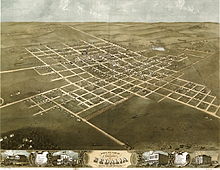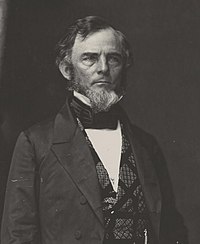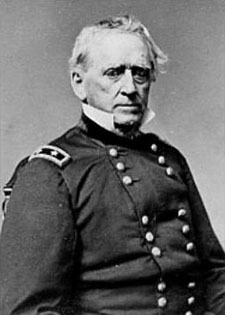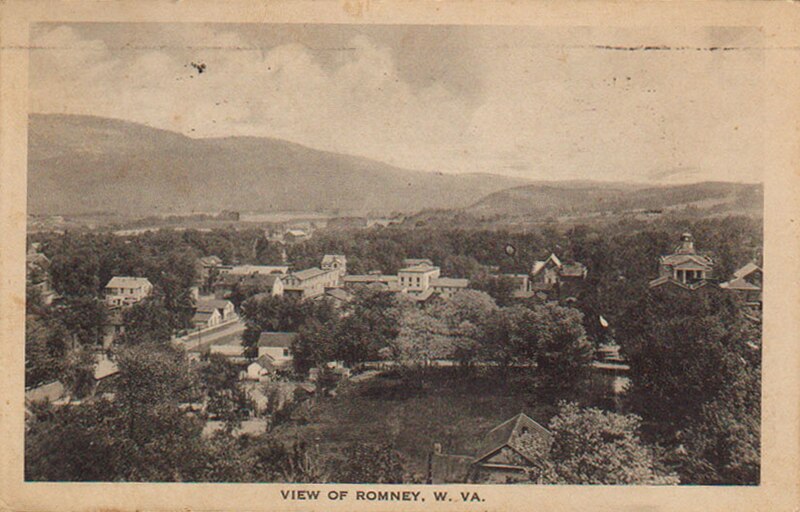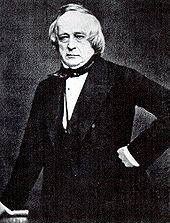 |
| Port Tobacco-Click to Enlarge | | | | |
Memorandum for General McClellan.
[Made on or about December 1, 1861.]
The idea of shifting the theater of operations to the James, York, or Rappahannock has often occurred. The great difficulty I have found in the matter is that of moving a body as large as necessary rapidly, and of making the necessary preparations for such a movement, so that they should not in themselves give indications of the whereabouts of the intended operations in time to meet them.
The first thing to be considered is the old danger attending all similar operations. In cutting the enemy’s line of operations you expose yourself, and a bold and desperate enemy, seeing himself anticipated at Richmond, might attempt to retrieve the disaster by a desperate effort upon Washington.
Leaving, then, as we should do, the great mass of the enemy in front of Washington, it would not be safe to leave it guarded by less than 100,000 men; that is, until we became certain that he had withdrawn from our front so far as to render his return upon it impracticable. It seems to me, too, that the full garrisoning of the works up to the standard fixed upon should be completed without delay. These works will but imperfectly serve their purpose if they are not defended by troops who have some familiarity with their positions and duties. (Lieutenant McAlester asks urgently for the regiment of colonel Poe, Heintzelman’s division, to be added to the 600 men under Colonel Christian at Fort Lyon; in the first place to give an adequate and efficient garrison to that important work; in the second, to enable him to get fatigue parties large enough to finish it off.)
The works between Potomac Eastern Branch [?] are finished and armed (with exception of the three small works above Chain Bridge, not quite done). Of those over Eastern Branch, Forts Greble, Carroll, Stanton, and work near Benning’s Bridge are nearly or quite done, and garrisons may be assigned. The gap between Benning’s Bridge work and Fort Stanton is being filled up by three or four works now under construction.
I dwell on this matter somewhat, since, if the army moves, particularly if it makes a flank movement, leaving the enemy in front, the measures for defense of the city cannot be too carefully taken.
Now as to the expedition: Considering the great difficulty of transporting at one time large numbers, the confusion which will attend the landing, and consequent difficulty of getting the columns into prompt marching order after landing, with our new troops, if the numbers are great, I should be disposed to make the first descent with a comparatively small but select corp, not over 20,000---at outside, 30,000 men.
Let it be supposed the latter number is adopted. How shall the movement be made so as to attract least attention in its preparations and to deceive the enemy as to their object?
General Burnside’s force I suppose to be about 10,000 men. His flotilla, including his seven sailing vessels and five floating batteries, will carry that number. (In my former memorandum I estimated 15,350, but I now exclude the surf boats and launches and diminish the numbers, as I then estimated for a short voyage, not leaving the Potomac.)
I suppose there would be three batteries and, say, 1,000 cavalry accompanying this division.
I suppose that, among the large steamers about Baltimore, the additional transportation for this artillery and cavalry could be found. If so, we have a force of 10,000 or 11,000, with artillery and cavalry, provided for.
For a second column, I think I would embark it from the Port Tobacco River. The concentration of troops under Hooker would cover a movement that way, and it would threaten the Potomac batteries.
The Navy will furnish four side-wheel steamers and the Stepping Stones, which will carry 3,500.
The Quartermaster’s Department has seven steamers, which will carry 5,000, and, collecting the eight or nine Schuykill barges to be found here and schooners and tugboats, so doubtless transportation could be commanded for 10,000, with three batteries of artillery and 1,000 cavalry. You will observe my estimates are much lower than before, for then I was considering an operation restricted to the Potomac and of not more than 50 or 60 miles.
Now for additional numbers: I am inclined to think it is easier to carry troops to New York (twelve hours), embark them there, and make but one thing of it, than to bring the shipping to Annapolis or the Potomac. However that may be, if it is determined that the additional number shall be 10,000 men or 20,000 men, or more, I would command the transportation at once in New York, the place where everything can be had in unstinted quantities and of the most suitable kind. All sea steamers (not otherwise chartered), the large sound steamers, the large North River, sound, and coasting propellers, can be had there; and there all of the appliances to fit them for troops, horses, &c., can be quickest made.
Perhaps the best way, therefore, would be to commence at once and send the troops, artillery and cavalry, to Fort Monroe, to hold themselves ready for shipment at a moment’s notice; to order the transportation necessary in New York.
According to the foregoing propositions, there would be three columns ready for a simultaneous movement; 10,000 at Annapolis, 10,000 at Port Tobacco River, and 10,000 or 20,000 at Fort Monroe. The times of starting could be arranged so that the times of arrival should be as desired.
Probably it would be better to have more than one point of debarkation. As soon as the first column was landed the transports could go immediately to Annapolis or Baltimore for more.
The arrangements give no indications of the intended point of attack. They threaten the Potomac, or Norfolk, or the Southern coast, as much as or more than the Rappahannock.
I presume there would be no difficulty in sending our steamers down to Port Tobacco; whether there would be in towing the barges there, I do knot know. This Potomac column does not satisfy me as well as the others, for the collection of troops at Port Tobacco, in connection with collecting at Fort Monroe and Annapolis, would rather indicate an operation in the Lower Chesapeake.
Distance of points mentioned: Urbana to Annapolis, 120 miles; Port Tobacco, 90 miles; Fort Monroe, 60 miles.
Respectfully submitted.
J. G. BARNARD,
Chief Engineer, Army of the Potomac.
Series I., Vol. 5, Part 1, Page 671
While President Lincoln favored an advance on the Occoquan, McClellan was developing the idea of moving his line of operations to the James, York, or Rappahannock. Barnard had lead the reconnaissance leading to the Battle of Bull Run and here lays out options to move around the Confederate right. Here Barnard envisions a rapid, surprise movement involving far fewer troops than ultimately would be used in the Peninsula campaign. The requirement to leave 100,000 troops in Washington seems excessive, but is in line with political expectations.
